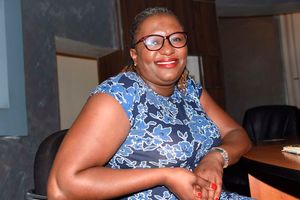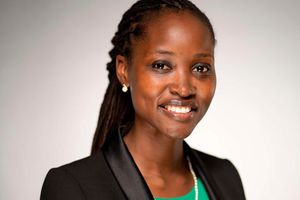Kenya can turn the tide on ignored rare diseases. Here’s how

What you need to know:
- In Kenya, some of the common rare diseases are multiple sclerosis, duchenne muscular dystrophy, narcolepsy and myasthenia gravis.
- Some patients have been diagnosed with rare diseases such as primrose, stiff person’s syndrome and pycnodysostosis.
- But given that Kenya doesn’t have a national registry for rare diseases (as yet), it is not possible to give demographics and the most affected areas.
Rare diseases, also known as orphan diseases, affect about 300 million people worldwide. Because of their rarity, they often go undiagnosed, misdiagnosed or under-diagnosed by the medical community, leading to limited access to treatment and support.
In Kenya, some of the common rare diseases are multiple sclerosis, duchenne muscular dystrophy, narcolepsy and myasthenia gravis. Some patients have been diagnosed with rare diseases such as primrose, stiff person’s syndrome and pycnodysostosis. But given that Kenya doesn’t have a national registry for rare diseases (as yet), it is not possible to give demographics and the most affected areas.
However, there is hope for people living with rare diseases, thanks to organisations like Rare Disorders Kenya (RDK), which is dedicated to addressing their challenges and advocating the full participation and inclusion of patients while protecting their human rights.
The state of rare conditions in Kenya is a cause for concern as many patients face significant barriers to accessing care and support. These include lack of knowledge of these conditions among healthcare providers, limited access to diagnostic tools and treatment, and lack of government policies and programmes that address the needs of patients.
However, this situation can be changed through combined efforts and partnerships with healthcare providers, government agencies and other stakeholders. Government officials have a responsibility to develop policies and programmes that address the needs of patients as well as providing funding for research and treatment. Additionally, they can work with patient organisations and health professionals to ensure every patient has access to proper healthcare.
That said, it is important to note that the government, through the Ministry of Health, tasked the formation of a technical working group for rare disorders that will bring together all key partners for oversight, joint planning and decision-making on rare diseases.
Health professionals play a crucial role in addressing rare diseases globally. By improving their knowledge and understanding of these conditions, they can provide better care and support. This includes providing accurate diagnosis, access to treatments, and continued support for patients and their families. They also have a responsibility to raise awareness and advocate for the rights of those affected.
By working together with patient organisations and government agencies, healthcare providers can ensure patients receive the care and support they need to improve their quality of life.
With RDK paving the way, patient-led organisations, not limited to rare diseases, play a pivotal role by providing support, patient advocacy, and creating awareness, hence improving lives. One of the highlights of RDK’s work is its participation in the annual global Rare Disease Day celebrations, held on the last day of February. This day is an opportunity for patients, families, healthcare providers and other stakeholders to jointly raise awareness of rare diseases and advocate for patients’ rights.
RDK is a key player in these efforts, organising events and activities to raise awareness and engage the public. By championing the rights of patients, developing policies that promote inclusion and full participation and collaborating with other organisations around the world, it betters lives in the country and beyond.
Grace is a Communication Officer at Rare Disorders Kenya




